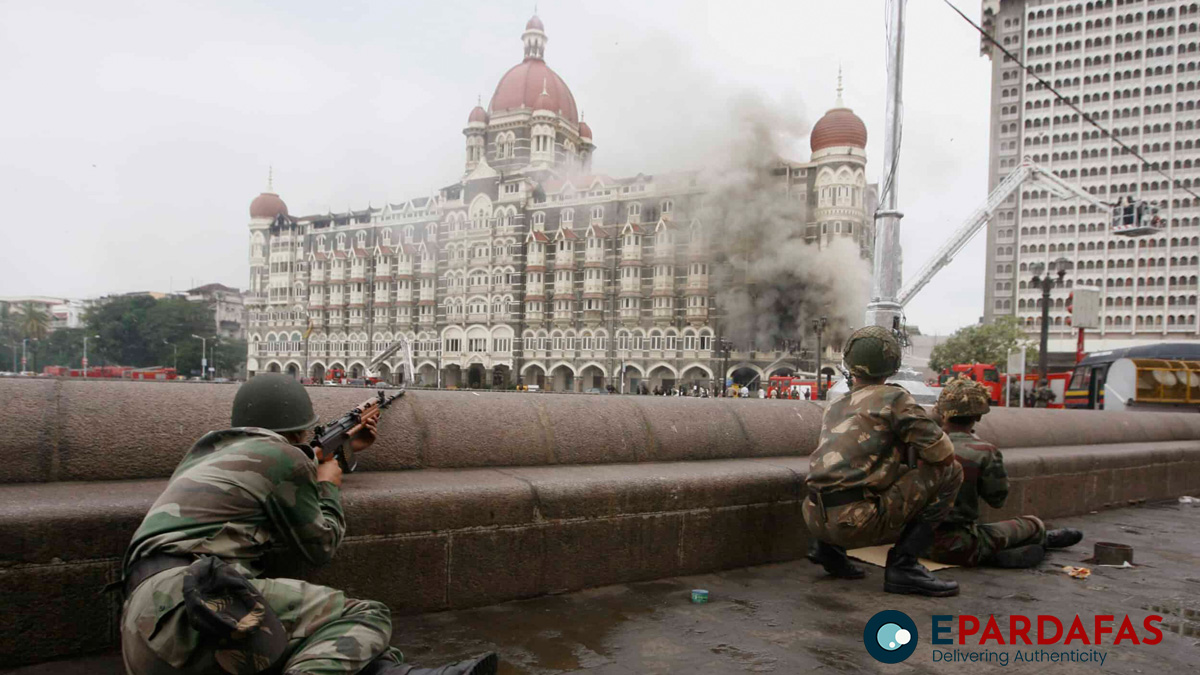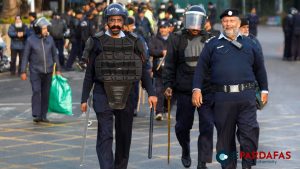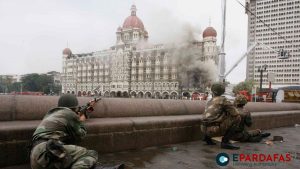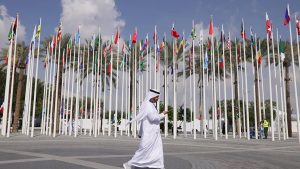
Mumbai Attacks of 26/11: A Global Tragedy and the Ongoing Fight Against Terrorism
The heinous 26/11 Mumbai terrorist attacks of 2008 remain etched in history as a stark reminder of the horrors of extremist violence. With 10 heavily armed terrorists, the attacks targeted not just India but the world, as victims hailed from across the globe, including the United States, Israel, and Britain. The carnage, meticulously planned and executed, claimed 165 lives and left hundreds wounded, exposing both the vulnerabilities of urban centers and the dangerous nexus between non-state actors and potential state sponsorship of terrorism.
The Atrocities of 26/11
The coordinated assaults struck at five prominent locations in Mumbai, including the Taj Mahal Palace Hotel, Nariman House (a Jewish cultural center), and Chhatrapati Shivaji Maharaj Terminus (the city’s central railway station). The terrorists displayed brutal intent, specifically targeting foreign nationals and engaging in mass executions. At Nariman House, Israeli nationals were tortured before being murdered, adding a deeply chilling dimension to the violence.
This was not merely an attack on Indian soil; it was a crime against humanity. By targeting locations frequented by international tourists and expatriates, the attackers sought global attention and widespread fear.
The Role of Lashkar-e-Taiba and Alleged State Sponsorship
Investigations pointed to Lashkar-e-Taiba (LeT), a Pakistan-based extremist group, as the perpetrators. Captured terrorist Ajmal Kasab, the lone survivor, provided critical information, confirming LeT’s involvement and the attack’s orchestration from Karachi. He revealed that the gunmen were directed in real-time by handlers using digital communications, implicating advanced logistical planning.
However, the controversy surrounding the attack deepened with claims of state involvement. The role of Pakistan’s Inter-Services Intelligence (ISI) has been a persistent point of contention. Evidence, including intercepted communications and financial trails, suggests complicity by elements within the ISI, though Islamabad has consistently denied state-level involvement. The ISI’s alleged connections to LeT, however, are well-documented, with reports highlighting its covert support for militant activities targeting India and Afghanistan.
International Reactions and Accountability
The global community condemned the attacks, but efforts to hold Pakistan accountable have faced significant challenges. Despite promises of cooperation, Islamabad’s actions often reflected evasion. Zaki-ur-Rehman Lakhvi, LeT’s military commander and the attack’s suspected mastermind, was arrested but later released on bail, a decision that drew sharp international criticism.
The United States’ approach has been mixed. While Washington recognized LeT as a terrorist organization and convicted David Headley, an American citizen who provided reconnaissance for the attack, the refusal to extradite him to India raised questions about its commitment to justice. This inconsistency highlights the complexities of geopolitical considerations, particularly the delicate balance of maintaining relations with Pakistan.
A Call for Unified Action Against Terrorism
The Mumbai attacks underscore the transnational nature of modern terrorism, where borders are irrelevant to extremist ideologies. The global community must collectively address this menace by:
Ensuring Accountability: Nations implicated in supporting or shielding terrorist groups must face international scrutiny and consequences. Diplomatic leniency emboldens such actions.
Strengthening Counterterrorism: Intelligence-sharing and joint operations between countries are essential to prevent future attacks.
Rejecting Extremism: Governments must actively dismantle networks of radicalization and propaganda, addressing the ideological roots of terrorism.
Criticism of Pakistan’s Role
Pakistan’s apparent inability—or unwillingness—to dismantle terror networks like LeT continues to undermine regional and global security. While internal political instability and military dominance over civilian governance contribute to this failure, it is imperative for Islamabad to adopt transparent and decisive measures against extremist elements. As former Pakistani Prime Minister Nawaz Sharif himself admitted, the lack of justice for the Mumbai victims has severely damaged the country’s international reputation.
Conclusion
The 26/11 Mumbai attacks were not just an attack on India; they were an assault on global peace and humanity. The victims, their families, and the survivors deserve justice, accountability, and unwavering efforts to prevent such atrocities in the future. The international community must ensure that terrorism, whether state-sponsored or independently organized, is met with unified resistance and decisive action. Only through collective resolve can we honor the memory of those lost and ensure a safer world for future generations.













Comments